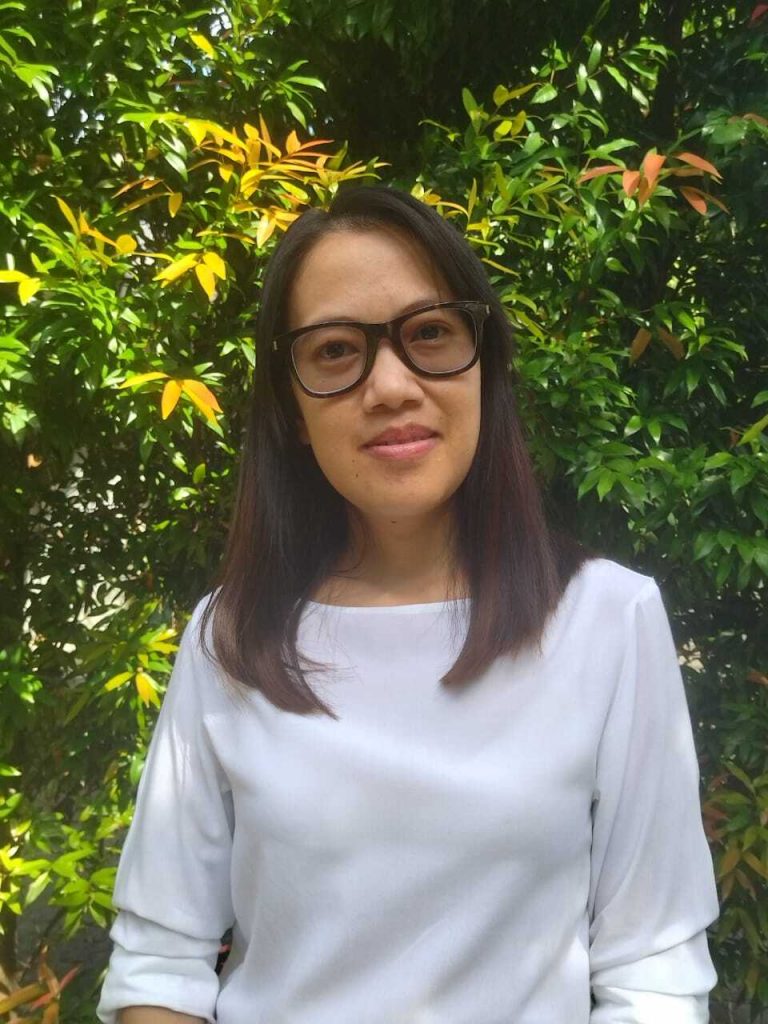
I always think of myself as a good story-teller. Maybe because I enjoy listening to people’s stories and I allow them to move and affect me. I find that each story is unique, each life is different.
I turned 40 earlier this year and half of that time has been spent working for the development and humanitarian sector. I knew nothing about the sector when I jumped right in after graduating from university. My salary was not enough to pay the bills, we did “fieldwork” on weekends, and it was a one-person show most of the time – by this I mean you had to facilitate while documenting and if you could, bring in snacks for the meetings – if my hands were not too full carrying the overhead projector or flipchart. But I was immediately hooked because of the richness of conversations, genuine relationships, and collective passion to make a difference.
One decade later, I had my first taste of working for an international non-profit and my first experience in doing emergency response. I am ashamed to admit it, but it was also my first recognition of how I was silently arrogant just because I understood the so-called “international humanitarian architecture.” I attended cluster meetings; I could apply globally-agreed minimum indicators (yes, and not just standards) to emergency response programming; and, most of all, because I was a “donor.”
I spent more time on logical frameworks, understanding donor and back donor compliance requirements, preparing and amending contracts, reviewing budgets, writing proposals and reports – thinking that these are the important and productive tasks.
I have climbed the career ladder and have had less time to listen to people’s stories. I spent more time on logical frameworks, understanding donor and back donor compliance requirements, preparing and amending contracts, reviewing budgets, writing proposals and reports – thinking that these are the important and productive tasks.

I mimicked and parroted jargon that made me sound like a certified international development professional. Some I knew by heart, others were mantras – well-meaning but could be hollow sometimes.
I witnessed and played a part in the competition of being the first in the field doing rapid assessments, or the first in setting-up cash transfers or relief operations, or disbursing grants to partner organizations. It became a contest for numbers, reach and visibility. In this race, the template and pro-forma response became the norm with some default sessions for sharing information. People’s lives, feelings, and thoughts just became anecdotes written in small boxes, usually on the lower right corner of our narrative reports.
We “favoured” partners who could submit reports on time, especially if system-generated financials were attached. We valued and encouraged partners’ flexibility (and rightly so) in accommodating donor’s requirements and requests even if they were contextually challenging at best, and inappropriate at worst.
I mimicked and parroted jargon that made me sound like a certified international development professional. Some I knew by heart, others were mantras – well-meaning but could be hollow sometimes.

I became less curious about the uniqueness of each story and instead, foolishly assumed that one success story could and should be replicated to another community. We looked for models and aimed for scaled-up solutions. We talked about partnerships but thrived on the power dynamics – calling on our donor status whenever it was convenient. We postponed confronting the inherent power imbalance in partnerships as proven by the widening gap between “local” and “international” budget spreadsheets.
We prided ourselves on our exemplary ability to adapt and navigate the complex funding landscape and donor requirements. We had the infrastructure needed to be compliant and we often let the red carpets roll during donor visits.
I became less curious about the uniqueness of each story and instead, foolishly assumed that one success story could and should be replicated to another community.
That mental image of a red carpet hit me hard several years ago. The retrospect took me back to my younger years when I was struggling to bring that 15-kilogram overhead projector to the field for community meetings. Back then, I could hear all the different and unique stories and I knew I was living my purpose. I was happy just listening to stories and allowing them to guide me. Years later, missing that younger self prompted me to revisit my core and my purpose. My re-grounding brought me to a collective of organizations that scrutinize power, explore trust-based partnerships and centre on community-led change. I am proud to belong to a group that shares compassion, and not just lip service, to put the communities at the centre of what we do. I am happy to be waking up every day challenging the inherent power that comes simply because I am connected with a certain organization. I am happy just to listen, act and learn. And to do so again tomorrow.
Years later, missing that younger self prompted me to revisit my core and my purpose.
I recognize that I am still speaking from a position of privilege – working with an organization, with consortium partners, and with individuals who put premium in unconventional, unstructured and emergent approaches and where all are trying to listen with humility. At 40, I am proud of what I learned from the people I worked with and the experience – mistakes and all – that came along with it because it made me realize the importance of what I missed most.
Many people act in the ways that I did (complying with the system rather than making it work better), because the system has its “culture and rules”, and power allows those rules to be maintained and enforced. We benefited from it. I know that it’s something embedded in the organizations and structures we are working with, much like The Matrix. Confronting this should start from a hard look within ourselves, what we have become and what we plan to move forward. If any of this resonates with you, may our collective voices give us the courage to change ourselves, and then change the system.
Catherine Gordo works with a consortium composed of GlobalGiving, Nonprofit Finance Fund, Global Fund for Community Foundations, and Center for Disaster Preparedness in embarking on the action learning programme dedicated to advancing community philanthropy and locally-led solutions in the Philippines through the programme Assets, Agency, and Trust, funded by USAID. She is based in Philippines.

